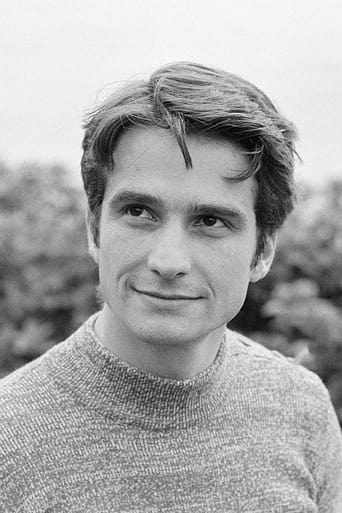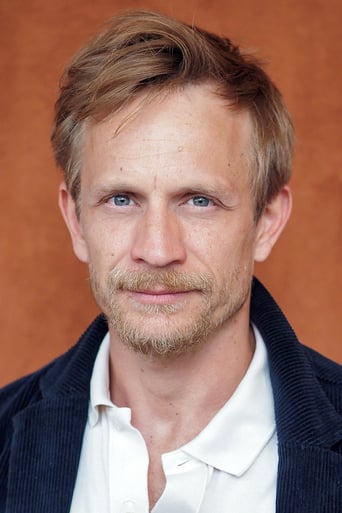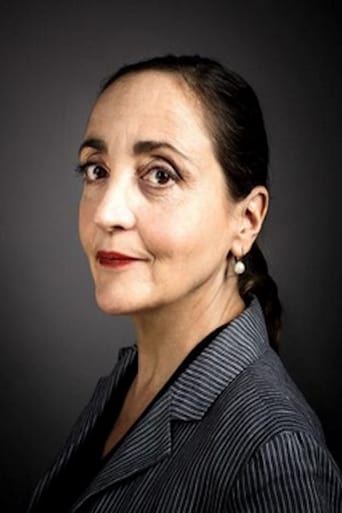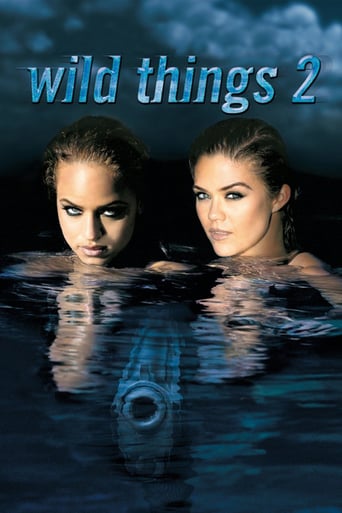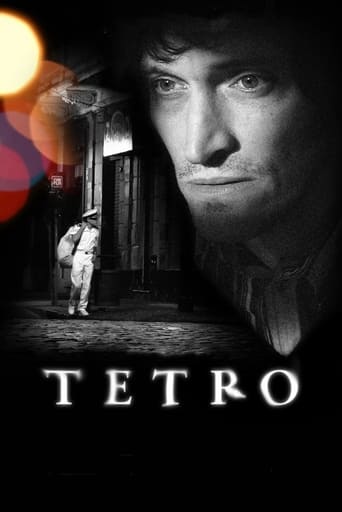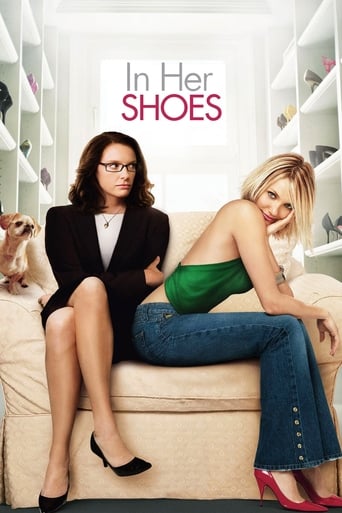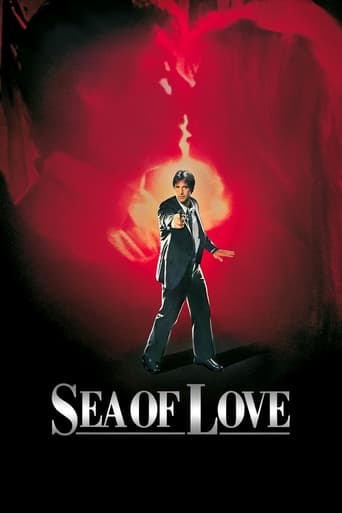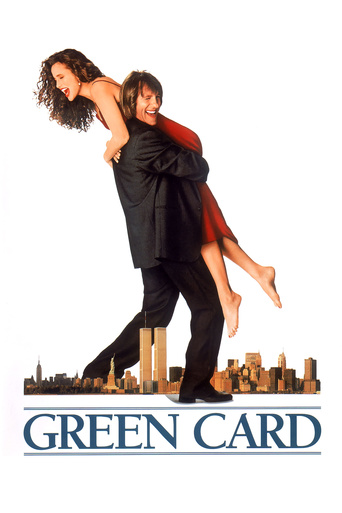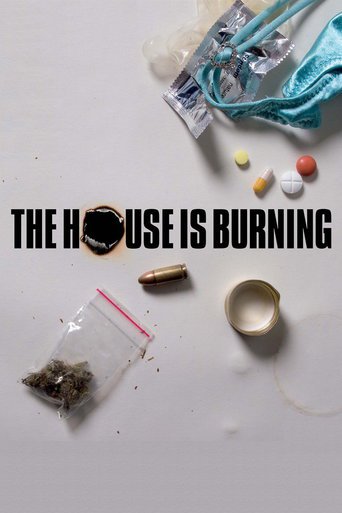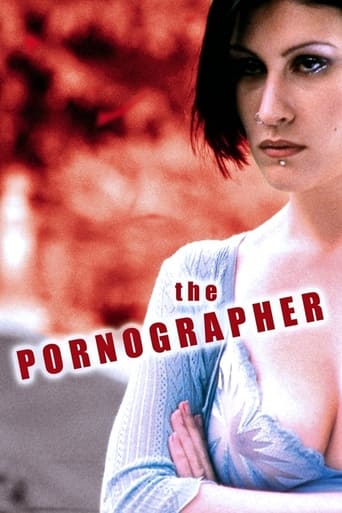
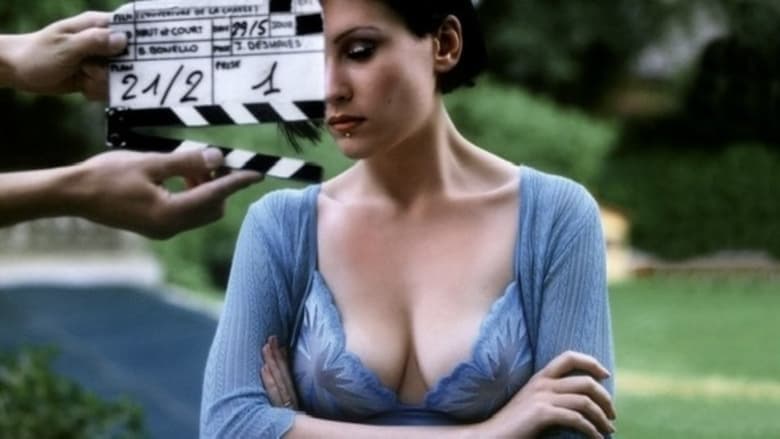
The Pornographer (2001)
Jacques Laurent made pornographic films in the 1970s and '80s, but had put that aside for 20 years. His artistic ideas, born of the '60s counter-culture, had elevated the entire genre. Older and paunchier, he is now directing a porno again. Jacques's artistry clashes with his financially-troubled producer's ideas about shooting hard-core sex. Jacques has been estranged from his son Joseph for years, since the son first learned the nature of the family business. They are now speaking again. Joseph and his friends want to recapture the idealism of 1968 with a protest. Separated from his wife, Jacques strives for personal renewal with plans to build a new house by himself...
Watch Trailer
Cast


Similar titles
Reviews
Le Pornographe can be termed as a decent film directed by Bertrand Bonello as it does not shock any viewer who has self conceived notions about the film's title.It is one of those typical French films in which characters ramble on various life affirming themes.This is the reason why the film's title is an absolutely inappropriate misnomer as the word "Le Pornographe" does not do much justice to this film's central themes.Bertrand Bonello has made effective use of his film's principal character,a famous French director of pornographic films Jacques Laurent to conduct an observational study about various human relationships which include a troubled father son relationship,a pallid husband wife relationship.These relationships are so strongly portrayed that the topic as well as scant depiction of pornography is easily sidelined.Although this film features some famous porn stars like HPG,Ovidie etc,it is through actors like Jean Pierre Léaud, Jérémie Renier,Catherine Mouchet and Dominique Blanc that Bertrand Bonello is able to lead his film to its inscrutable conclusion.
As I read it, this rambling film is a case study of declining potency. Jean-Pierre Leaud is surprisingly unprepossessing as a dumpy, long-haired director who's made a couple of well-received skin flicks with titles like, "I'm Hard, I Come, I Sing," but has had -- well -- director's block since 1984. It's a sad tale. And you feel sorry for the actor right away, if you remember Leaud in Truffaut's earlier films or in "Belle de Jour," a dark and sometimes menacing vibrant presence.Felt sorry for his character as well. The film makes it clear that sex is like power is like life. Leaud's 1968-style political activism is now obsolete. The new activism opposes a government that treats us "like a statistic." Its ultimate response is elective mutism, so Leaud winds up communicating with his son by reading his notes instead of having a conversation.We can see Leaud's power -- his vision, if you will -- being taken away from him. He's directing a scene in which a fake chauffeur is seduced by a 16-year-old heiress. (I think I'm getting this right. It was a little confusing.) He lays out his plan for the rest of the crew. As usual, the cameras will stay perfectly still while filming this sexual encounter. One camera for closeups of organs and faces, the other for a medium shot. The actress will not emote while the chauffeur does her. No phony moaning or wild gyrations. Leaud, the director, will take care of that part for her. Finally, he wants her to, well, swallow as she might offscreen. Those are his directorial intentions.Just before shooting starts, the Assistant Director plays some romantic music, thinking it may help the scene. "No music," says Leaud politely but firmly.The scene begins the way Leaud wants it. But Leaud is staring at the floor. The AD asks, "Aren't you going to direct it?" Leaud replies: "I've already directed it." But not to the AD's satisfaction. First the AD begins prompting the actress -- "Louder. We can't hear you." Then, little by little, the AD takes over the scene. He instructs the actress to shout and move around more. He plays the forbidden romantic music. He moves the cameras around. And the actress gets a cliché right in the face.What might have been a more or less personal scene has been turned into something that the industry grinds out like Wendy's Whoppers. And all this time, Leaud has been moping in his chair, without a whimper of protest.That scene summed it up for me in many ways. Other scenes got by my interpretive apparatus entirely. I don't know what's going on when Leaud leaves his wife. I have no idea why Leaud asks permission to build a house on a friend's land and then, after laying out a sketchy floor plan of a tiny shed, simply sits there staring at it for scene after scene. Is it "symbolic"? If so, the symbolism whizzed past me without doing any damage and went on its way. I think I DID get symbolism elsewhere. When Leaud's son and his girlfriend make love in a meadow, we don't see them "doing it" but we get a lot of shots of sheep running around all woolly and sweaty looking. Very mammalian stuff.Is the movie worth watching? Probably. Nice photography, good acting. Definitely, if you're a 50-year-old and your vision is increasingly impaired by senile cataracts.
It's truly riling when a film reeking of self importance and supposed deep meaning is so obviously a total fake. There may have once been French films in which great existential truths were told with a particularly somber French seriousness. This must have made a lasting impression on many a future director who dreamed of one day putting some of their own deep truths on screen. This led to too many pretentious French films which really have little if anything of importance to say, other than some empty platitudes in the guise of a intellectualism. These films tend to give you the feeling of inadequacy. While others around are imbibing the pearls of wisdom you may sit dumbfounded wondering what it's all about. Don't be fooled for a minute by this hollow pretense."Le Pornographe" is a prime example. It's a total bluff and in cinematic terms a complete mess. Jean-Pierre Leaud trades off his legendary younger days as Truffaut's alter ego. This may lend a certain weight to the character, but again it's a mere cloak for the nothingness beneath. The actors are constantly brooding, with a vacant expressionless stare. This is not meaningful as director Bonello would want us to believe, it's simple a façade. Jeremie Renier, one of the more promising young French actors is wasted in this vacuous exercise.You might think a statement would be made about the nature of pornography, a subject begging out for a truly insightful cinematic investigation. But even that is skirted. What remains is an extremely irritating and decidedly boring film. Even the inclusion of two hard core (though distantly shot) sex scenes, both totally devoid of any eroticism, fails to inject some life into this abomination.Fakery of the very worst kind.
Jacques (Jean-Pierre Léaud) is more like a philosopher in this movie by Bertrand Bonello than a director of a pornographic movie. He looks back at his life and explores the sense of his existence. It is not clear how he lives when he makes his last movie after some years of interruption and how he sees his future but he takes some comfort in the presence of his son. This movie is very sober and in fact it is pessimistic because it does not give us an answer about the meaning of the life of the main character Jacques. Is he sad about his career as a maker of pornographic movies or is he proud of his work?


